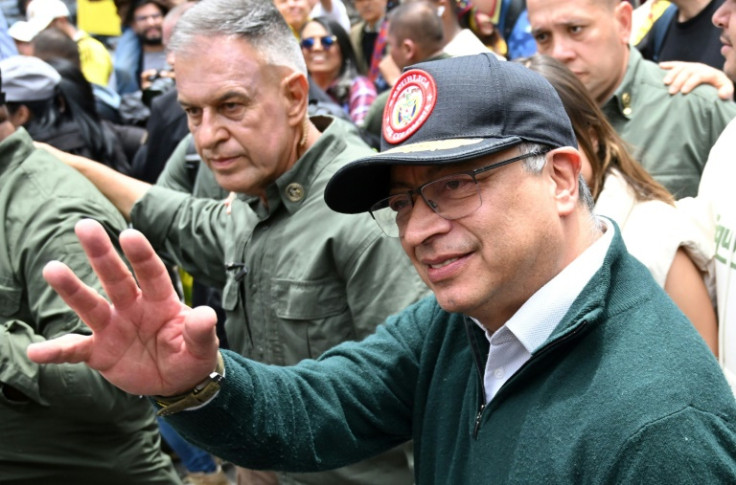
Colombia's president on Thursday called for international help to slash the cost of servicing the country's debt in order to support its fledgling peace process, which he claimed would help "put an end to cocaine" globally.
Leftist President Gustavo Petro has faced multiple obstacles in his efforts to end six decades of conflict between security forces, guerrillas, right-wing paramilitaries and drug gangs.
He said that if Bogota could spend less paying off debt, it could implement land transfers to rural residents who had laid down their arms following the conflict, as well as resolving environmental issues.
"Peace in Colombia would put an end to cocaine in the world," he added, stressing that funds were needed to ensure the cessation of bloodshed continued.
Petro was speaking at a United Nations meeting to give an update on the country's implementation of peace agreements signed in 2016.
"There could be no more honorable, dignified and meaningful agreement" than one between Colombia and its creditor nations, he told the 15 countries gathered at the Security Council.
Petro is seeking to expand the agreements to include other armed groups, including the Marxist National Liberation Army (ELN) -- responsible for the kidnapping last October of the father of Liverpool footballer Luis Diaz.
In October 2023, talks began with the main dissident group, the EMC, which has been plagued by ceasefire violations and saw a major split in the group in April, leading half of its fighters to abandon peace negotiations.
"In Colombia, peace is seen as something revolutionary, while the violence that has plagued us for generations is seen as the norm," he said.
A UN survey of conflict zones in the country found that more than 80 percent of respondents favor dialogue to resolve disputes.
Rights groups accuse guerrillas in Colombia of taking advantage of various ceasefires to expand their influence by seizing more territory and recruiting new members.
According to a report by the International Committee of the Red Cross published in April, clashes between armed groups have intensified and civilians are "paying the price."







